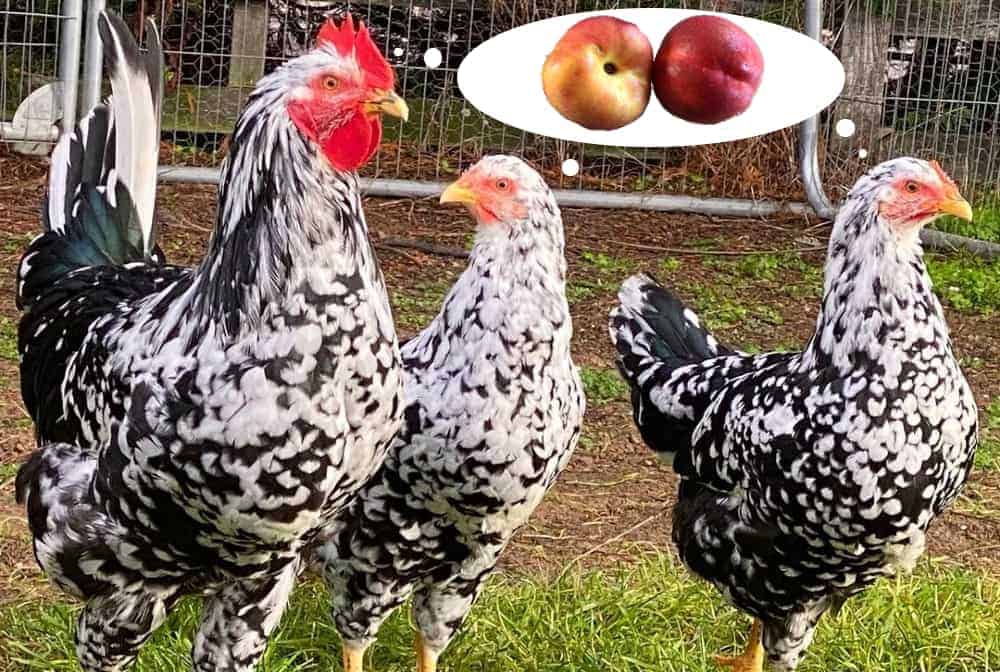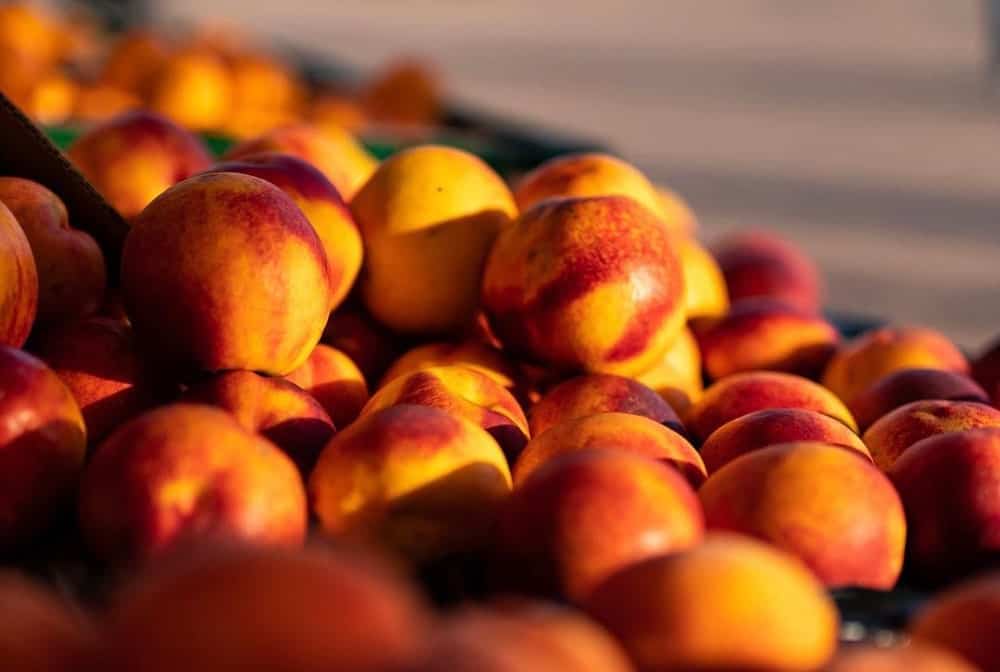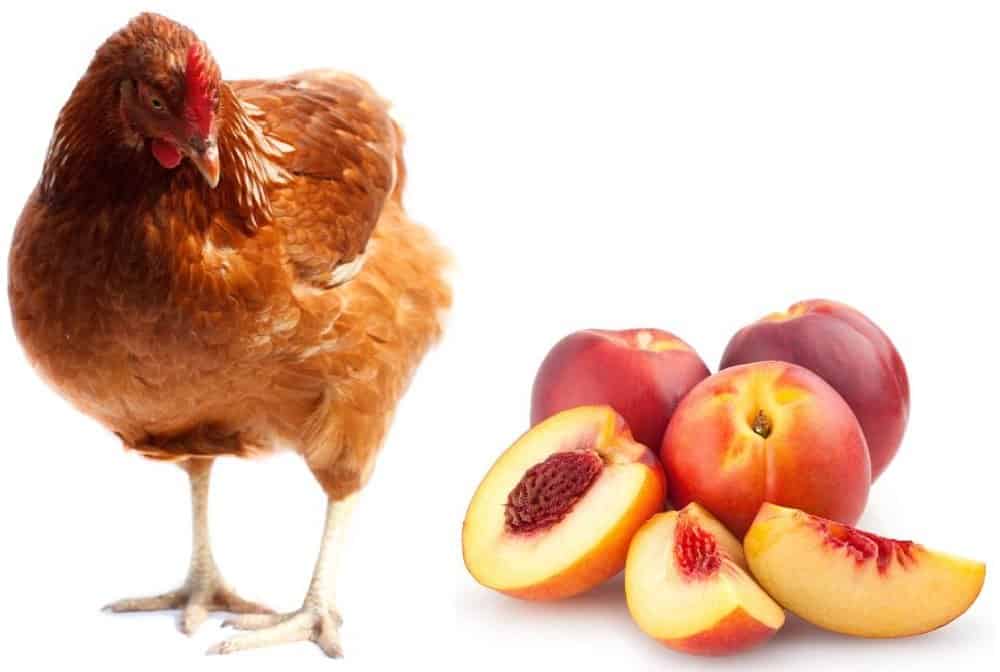When it comes to feeding chickens, there are a wide variety of options available to farmers. One option that’s becoming increasingly popular is feeding them nectarines. Nectarines are not only a nutritious food for feathered, but they can also help to boost their immune system and reduce stress levels. If feeding these fruits to pets, it’s best to offer a variety of other foods as well to ensure that they’re getting all the nutrients they need.
In general, most experts recommend that nectarines make up no more than 10% of a chicken’s diet. This means that if you’re feeding your pet a diet that consists mostly of pellets or other grain-based foods, a few fruits here and there will be fine.
Is It Safe for Chickens to Eat Nectarines?
Chickens are capable of eating a wide variety of fruits and vegetables, including nectarines. They’re safe for feathered to eat, but there are a few things to keep in mind.
First, make sure that the nectarines are ripe and soft. Hard, unripe fruits can be a choke hazard for birds.
Second, remove the pit from the fruits before feeding them to your pets. Pits contain cyanide, which can be poisonous to chickens. Feathered can also choke on the pits of nectarines. Pits can also get stuck in a chicken’s crop, which’s a pouch at the base of the chicken’s throat where food is held before it enters the stomach. If a pit gets stuck in the crop, it can cause asphyxiation.

Feathered can eat both the flesh and the skin of nectarines. Skin is a good source of fiber, so it’s best to leave it on. Nectarines are a tasty treat for them and a good way to add some variety to their diet.
Other than those two things, nectarines are perfectly safe and healthy for birds to eat. So feel free to give your feathered a little treat every now, then by giving them a nectarine to enjoy.
Are There Risks in Feeding Nectarines to Chickens?
Chickens love the sweet taste of nectarines, they’re a healthy treat for them. While nectarines are harmless for feathered to eat, there’re several things to keep in mind.
Make sure to cut them into small pieces before feeding them to your pets.
Second, these fruits are high in sugar. Too much sugar can lead to obesity and other health problems in chickens. So, feed nectarines in moderation and always offer fresh water alongside.
Chickens can develop an allergy to any food item, but nectarines are a particularly common allergen. Symptoms of a chicken allergy include sneezing, wheezing, and difficulty breathing.
If you do choose to feed these fruits to your pets, be sure to do so in moderation.
Important! If you have any concerns about the safety of nectarines, consult with a veterinarian before feeding them to your feathered.
Are Nectarines Healthy for Chickens?
Nectarines are a type of stone fruit that’s related to peaches, plums, and apricots. Chickens love fruit, and nectarines are no exception.
They need a variety of vitamins and minerals in their diet in order to stay healthy. Nectarines are a good source of vitamins A, C, as well as fiber and potassium, and magnesium. Vitamins and minerals can help improve egg production in chickens. This is due to the fact that they help keep the chickens’ reproductive system healthy. If your pets are looking a bit on the skinny side, nectarines can help them out. Extra calories can help feathered gain weight. Just be sure not to overdo it, as too many fruits can lead to obesity. Macro and micronutrients in nectarines also help keep chickens’ feathers healthy.
This is important because healthy feathers are essential for insulation and waterproofing.
Can Chickens Eat Nectarine Skins and Pits?
As any chicken owner knows, these birds will pretty much eat anything. Skin of a nectarine is also edible and contains many of the same nutrients as the flesh. It’s a rich source of fiber, which can help with digestion. Fiber is important for feathered because it helps them digest their food properly. Only be sure to wash the fruit before feeding, as the surface of the skin may contain pesticides.
However, the pits can be a choking hazard. If you do feed your pet nectarine skins and pits, make sure to remove the pits first.
FAQs on Nectarines For Chickens
How many nectarines can I feed my chickens?
As a rule of thumb, you can feed your chickens one nectarine per day. However, this may vary depending on the size of your birds and how many other treats they’re getting. If you’re unsure, it’s always best to err on the side of caution and give them less rather than more.
How often can I feed nectarines to my chickens?
Chickens typically eat between 2-4% of their body weight each day, so a good rule of thumb is to offer them no more than 1/2 a fruit per day.
What should I do if my hen eats too many nectarines?
If your hen eats too many nectarines, she may develop an upset stomach or diarrhea. If this occurs, provide her with plenty of fresh water and watch for any signs of dehydration. If her symptoms persist or seem to be getting worse, contact your veterinarian.

Conclusion
Nectarine chicken feeding is a process that can be done from different perspectives. Some people may view it as a necessary step in order to have healthy and delicious chicken meat. Others may see it as a way to provide their birds with a more natural diet. Still, others may see it as a fun and creative way to bond with their feathered.
So, whether you’re doing it for the health benefits, the fun, or the bonding, nectarine chicken feeding is a great way to provide your pets with a delicious and healthy treat and to add variety to your chickens’ diet.
Sources:
- Things That Are Toxic To Chickens (by Amber D Barnes) https://opensanctuary.org/things-that-are-toxic-to-chickens/?print=print
- A review of the role of magnesium in poultry nutrition (by Y. Shastak, M. Rodehutscord, World’s Poultry Science Journal) https://www.researchgate.net/publication/276842330_A_review_of_the_role_of_magnesium_in_poultry_nutrition#:~:text=Magnesium%20has%20essential%20functions%20in,important%20issue%20in%20poultry%20nutrition.
- Role of Dietary Fiber in Poultry Nutrition (by Oscar J Tejeda, Woo K Kim, Open Access Journal from MDPI) https://www.semanticscholar.org/paper/Role-of-Dietary-Fiber-in-Poultry-Nutrition-Tejeda-Kim/303248ec1448a03d2ea536cc84e2208fc3ef186e
